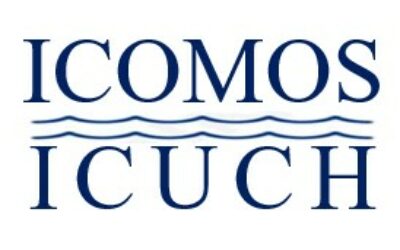ICUCH to Spotlight African Underwater Heritage at UNESCO NGO Side Event
The International Committee on Underwater Cultural Heritage has been confirmed to participate in an accredited NGO side event during the 10th session of the Meeting of States Parties to the 2001 UNESCO Convention on the Protection of Underwater Cultural Heritage in Paris from June 16–17, 2025 . This event focuses on enhancing the capacity to protect and promote African underwater cultural heritage—regionally significant shipwrecks, submerged archaeological sites, and traditional cultural landscapes at sea—by spotlighting both the pressing challenges and the emerging opportunities in the sector
ICUCH Champions Cultural Heritage in Launch of Malta Manifesto at UN Ocean Conference
At the 2025 UN Ocean Conference in Nice, the International Committee on the Underwater Cultural Heritage took part in the official launch of the Malta Manifesto, a global call to action spearheaded by Project Tangaroa. Led by Lloyd’s Register Foundation, in collaboration with The Ocean Foundation and Waves Group, Project Tangaroa brings unprecedented attention to the environmental and cultural risks posed by over 8,500 potentially polluting wartime shipwrecks worldwide. The Manifesto outlines a coordinated international response to prevent ecological harm while safeguarding underwater cultural heritage.
ICUCH Brings Underwater Heritage to “Human Rights” Session at One Ocean Science Congress
The International Committee on Underwater Cultural Heritage (ICUCH) of ICOMOS participated in the “Human rights” session (Session ID 51397) . This session emphasized the recognition of both human and non-human rights to a healthy ocean, and the vital importance of including intangible and tangible underwater cultural heritage in ocean governance frameworks. ICUCH’s contribution spotlighted how underwater sites carry human stories, cultural identities, and sometimes even serve as memorials. By framing these sites within a rights-based approach to ocean stewardship, ICUCH argued they must be protected not only as environmental resources but also as living cultural legacies. Their intervention called for integration of heritage values into policy and science to ensure respect for community memory, ethical governance, and the rights of future generations.
Protecting Underwater, Marine, and Coastal Heritage through Knowledge, Partnerships, and Community Engagement
The ICOMOS International Committee on the Underwater Cultural Heritage (ICUCH) is now part of a new initiative registered on the Partnerships for the Sustainable Development Goals (SDGs) Online Platform. This collaboration brings together ICUCH, the University of Malta, the SARChI Chair in Ocean Cultures and Heritage (South Africa), and the Women and Oceans Policy Think Tank.
